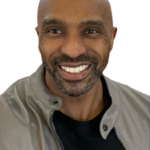Eliezer Wiesel “Night”
Eliezer Wiesel received a Nobel Peace Prize for his works on reliving the truculent, atrocious events he witnessed during the Holocaust. In descriptive detail, he told of how the Nazi Ruler, Adolph Hitler, dispensed malevolent orders to destroy the Jewish people. As one of the last survivors of his subgroup, he clearly pointed out that Hitler is beyond human comprehension.
As I peek through my scope and use my optics of surveillance, I find strength in the perseverance of Eliezer Wiesel’s quest to live, compared to this area of modern-day American History. Eliezer demonstrated that only “present” awareness could free one of the past. Likewise, he established the key to plugging into man’s infinite power. A force within each of us to access our individual “Power of Now.”
It is written in Luke 17:21, if any man should ever come, saying, “Look here or look there, believe them not, for the kingdom of God is within you.” Looking within for inner strength and fortitude takes on a new meaning when studying Eliezer Wiesel’s journey of escaping death inside the Auschwitz concentration camp.
How did he survive this never-ending nightmare? I am learning that ‘things are not always as they seem’! Death seemed to be the more noble approach to ending one’s suffering. His ultimate suffering provided him the power to persevere just one more day. It also filled him with the guidance and fortitude to have the last words against his oppressors.
In his early teenage years, the young Eliezer experienced a range of emotions trying to discover what kind of God would allow such horrific crimes against humanity to unfold. Facing the German enforcer, Eliezer consciously decided to increase his age from 13 to 18. This maneuver proved to be the pivotal move he made when entering Auschwitz, where Hitler set up concentration camps to eradicate the Jewish population. His death penalty of choice was the gas chamber. The male Jews who met age guidelines performed back-breaking labor, and the soldiers would kill the remaining males, either too young or too old. After the gas chamber, the Jews were burned dead or alive in massive crematoriums. They burned Jewish bodies, and the remaining bones were crushed with pedestal devices to dust particles and used as fertilizers in the fields.
Diving into my post-reading, conscientious mindset, the title of the book “Night” had photographic and cinematic associations. His decision to expand his age to 18 kept him with his father in the camps. His present awareness to make life-or-death decisions for survival was repeated at every turn while imprisoned and tortured.
In Genesis 1:3-5, God created “DAY” and “NIGHT” on the “FIRST” day.
“Let there be light,” and there was light. And God saw that light was good.
Then he separated the light from darkness, and God called the light “Day” and the darkness “Night.”
Note: the following enlightening metaphor, “Night”
“Night” synonymously depicts a dark time or place.
“Night” is the time of the evening when the Jews were made aware that the Germans were deporting them as enslaved people to a foreign place.
“Night” reflects containers of Jews railroaded inside livestock containers to the Auschwitz Concentration Camp.
“Night” reveal Jews gather together in the freezing sleeping quarters and still muster up the strength to pray to God for grace, mercy, and freedom.
“Night” heard in far-off distances, the war ensuing that they all hoped would make their way to free them from captivity.
“Night” when Eliezer observed German soldiers throw infant babies into fires alongside ditches the Jews dug by shovel earlier that day.
Hitler gave orders to toss tens of thousands of innocent babies like rag dolls into burning flames, seemingly the devil.
The naivete of children stripped from their mothers and fathers, and offered as a sacrifice, makes little sense. Fathers dug large burial holes, then executed at close range to fall into the graves they dug.
This act of genocide by a tyranny of man has run through my mind consistently since reading this story. To dive deeper into the historical events that led to World War 2, I am now reading the book “D-Day.”
“Night” was when the Jews would see the flames and smoke bolter in the air from the crematoriums.
“Night” was when the fragrant odor was at its peak. They could smell burning flesh flowing inwardly through their nostrils from the outer periphery of the crematorium’s walls.
Twenty-four hours a day, the crematoriums ran in operation, a stark reminder of the Jews’ unavoidable fate. The large chimneys catapulted in the air, appearing like mini skyscrapers puffing smoke, like the train that herded them there. The death chamber inside those walls was a living, breathing, ticking time bomb that stood firm, cutting the link between fear and your thinking. If the famine Jews were too sick, young, old, or became a liability to the Germans, they knew the death they would endure.
“Night” was Eliezer and his father choosing to go left at a road crossing while marching to what they didn’t know then, which was their fate for living or dying. Instinct guided their “navigational route.”
“Night” is when his mother and sister turn right at the same road junction where the father and son turn left.
This “Night” would be the last time Eliezer and his father would ever see their mother and sister alive. The Nazi regime brutally killed his mother and sister.
“Night” was when Eliezer’s father whispered his final goodbyes to his son when he died just one day before the Americans made it to their camp and rescued the last survivors. Eliezer and his father shared a bond throughout their entire life. His fatherly bond made me appreciate the bond I have with my father that I still communicate to this day.
My heart is sledgehammer-heavy, and my thoughts slow to the point of sludge-like movement as the images of their ravaged bodies and broken spirits claw and scrape for life. Eliezer was skin and bones when his father became very ill at the very end. His father was beaten continuously in front of his son when he asked for water. Eliezer was so tormented and depleted he had no more tears to cry.
The following morning Eliezer awakened, looked at the bunk where his father usually slept, and realized his father was missing. Inherently, he knew the German soldiers took him to the crematorium and killed him. His father’s last words were Eliezer–crying for the comforting touch of his son while dying. Eliezer was rescued by the American Army the following day as one of the few lone survivors.
In summation, the Auschwitz concentration camp was a place designed for the extermination of the Jewish people. In total, the Nazi regime killed an estimated 1.1 million Jews between 1940
to 1943. Hitler’s standard operating procedure was simplistic. When the Jews arrived at Auschwitz, the SS German doctors inspected them to assess their fitness for hard labor or execution. Men and boys formed one long row. Women and children of both sexes started the opposite long row. The Nazis immediately executed elderly fathers and boys under 16. For this reason, Eliezer cited his age as 18 when asked by the doctor. A secret messenger had tipped him and his father of the age criteria to avoid a quick visit to the crematorium.
Mass genocide extermination occurred for all women and young children, male and female alike. Of the total estimated slaughtered Jews, 1.1 million, approximately 200,000 were directed to harsh labor camps. The Nazis used different capacity-size gas chambers to carry out the genocide. The Jewish people participated in ongoing experiments to determine the most effective chemical agent for execution. The most frequently dispensed gas was called Zyklon B.
The record reveals up to 4,500 massacred Jews daily and 1.2 million annually. The largest chambers (IV and V) were built underground with the capacity to hold and annihilate 2,000 Jews. Smaller numbers, approximately 600, were cremated in aboveground sections with vent chimneys to release poisonous gases into the air. The 6th gas chamber was under construction to house the most significant number of Jews but terminated when the American army ceased the invasion and the vindication fight.
Eliezer Wiesel’s story speaks to the grueling hardships of the Jewish people. His story speaks to strength to live, faith to endure, and purpose to fulfill. With many Jew’s religion tested to the brink of death. Eliezer expressed the natural emotion of anger and questioned where is God. Despite the circumstance, he lived to tell ‘his story’ that God was there and still is. He lived to tell the story, not only for the Jewish race but for all to gain meaning and insight that injustice to one race is an injustice to all.
Daily, I reflect on key components of “Night”. It is a valuable asset when I need encouragement or need to encourage others. His story provides me strength on the days my light appears dim and I need a new LED upgrade on my internal hard drive. I am grateful for his documented story of hope, strength, power, and faith to help me and others remain on our navigational course in life.

